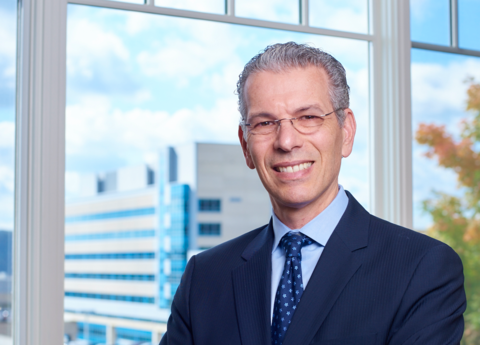It wasn't that long ago that the cost of DNA sequencing was measured in the millions of dollars.

Dr. David Feinberg, M.D.
Even a few years ago, when the cost fell closer to a few thousand dollars, it was largely used for research purposes or reactively as a tool for patients who'd already fallen ill.
Now, Geisinger President and CEO David Feinberg, M.D., said the time and cost is finally right to make whole exome sequencing a "routine" part of screening for patient diseases.
"We didn't want to wait," Feinberg said, adding the sentiment was shared by doctors.
On Sunday, he announced the company would expand the testing, starting with a pilot of about 1,000 patients within the next six months before scaling the service to all patients in its facilities across Pennsylvania and southern New Jersey. "We just thought there would be too many lives lost if we waited until we really wrapped it all up in a neat bow in a research capacity."
And, Feinberg said in a call with reporters on Monday, Geisinger will pay for the tests.
RELATED: Geisinger Health plans to make DNA sequencing 'routine' part of care
"We believe, but we have not yet proven, that this is cost-effective meaning the cost of the test is going to be offset by catching people earlier in their disease course or eliminating a disease," Feinberg said.
Officials estimate the cost per patient per test are between $300 and $500.
About half of the $7.5 billion health system's business involves its integrated care model involving its own doctors and insurance, but officials said it will cover the cost of the test no matter who insures the patient.
In all, Geisinger said it has set aside a few million dollars from both donors and its insurance arm to scale the use of the tests.
"Our gut feeling is that we'll be able to show that it's sustainable and actually a decrease in costs overall," Feinberg said.
RELATED: NIH: All of Us precision medicine project finally ready for prime time
So far, in a research collaboration with Regeneron Pharmaceuticals that involved amassing data from 200,000 people, Feinberg said the organization found it could identify medically actionable findings in the genome before patients became sick in about 3.5% of patients. Officials said they eventually expect as many as 10% to 15% of patients might benefit from testing.
Just how will it actually work? Currently, when a patient goes into their doctor's office and their cholesterol is checked, they are asked if they've had a colonoscopy or mammogram.
"We just want to add to that list: 'Well, I think it makes sense to do whole exome sequencing on you so we can understand your genes and prevent something," Feinberg said.
RELATED: Geisinger to cover health plan members’ lifetime hip surgery costs under new initiative
The cost of the wraparound services to this sequencing such as the cost of all the genetic counseling, the analytics, the return of results to patients is expected to be covered by insurance coverage in the same way as if a patient who has a positive test finding and requires a follow-up visit with a doctor, he said.
"We think we've worked out the process so that when those mutations do become discovered when we see them in our patients and population, we have a process of getting that information back to the doctor and back to the patient and really sophisticated ways of doing genetic counseling, so that we can scale it," Feinberg said.